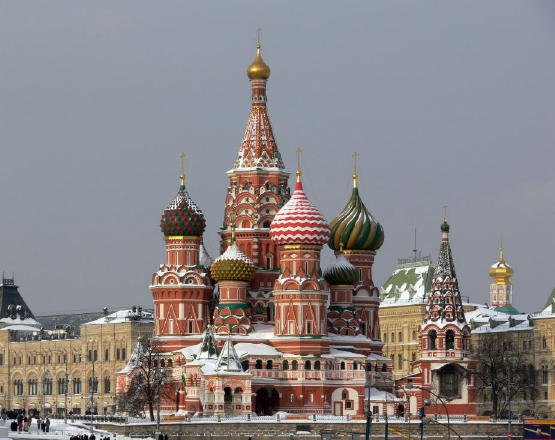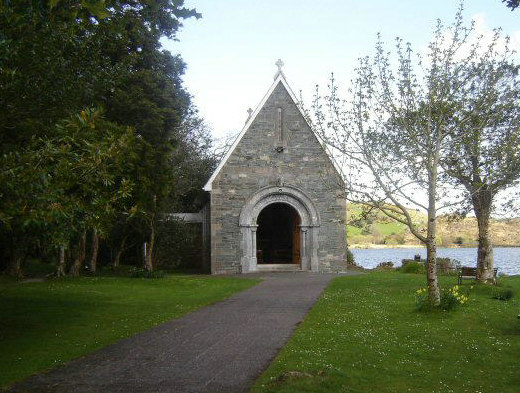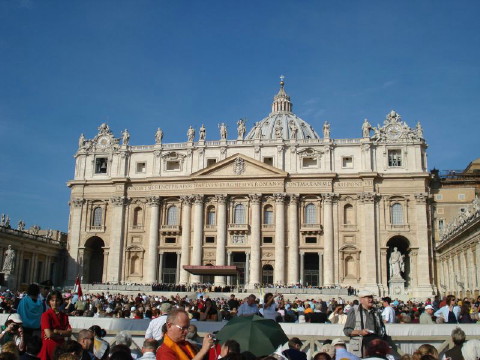Where did all those churches come from?
Our world today is filled with many different ‘Christian’ churches. Even in Cork we can find many different religious groups whose members practice different teachings. Can we all be right? Can there be more than one truth? Or does it make any difference today what we believe or which church we attend?
Where did all the churches come from? Well, first, let us examine what the Bible says about the Lord’s church, and then we can look at the question of where some of today’s churches and denominations have come from.
Is it possible for the Lord’s church to exist today as it did in the days of the apostles and the New Testament?
The Bible speaks of only one church. When Jesus promised to establish a church, He spoke of “build my church” (Matthew 16:18). The night before Jesus was crucified, He prayed that all believers would be “one” even as the Father and the Son are united in purpose, plan and work (John 17:20-21).
When the church at Corinth was troubled by division, the apostle Paul rebuked them and pleaded with them that there be no “divisions” but rather that they be “made complete in the same mind and in the same judgment” (1 Corinthians 1:10). If it makes no difference what church people attend today, why did was Paul so concerned about the Corinthian Christians splitting up into different groups.
God’s desire and plan for unity among believers is described in the letter to the Ephesians (4:3-6), as “one body and one Spirit, one hope; one Lord, one faith, one baptism, one God and Father.” The Bible talks about as many Lords as churches, as many Gods as faiths, as many Holy Spirits as bodies of believers …ONE!
Actually, the origin of the church was always in the mind of God. Hundreds of years before Jesus came in the flesh, the prophets of the Old Testament spoke about the establishment and characteristics of Christ’s church, which is God’s spiritual kingdom. Read Bible passages like Joel 2:28-32, Isaiah 2:2-3, Daniel 2:40, 44 and Jeremiah 31:31-34 and see how these predictions about the establishment of God’s church have been fulfilled. One problem in the religious world today is a misunderstanding of the nature of God’s kingdom. People look for an earthly material kingdom that must be set up in Jerusalem some time in the future. Yet the apostle Peter recognized that the establishment of God's church in the first century was a direct fulfillment of God’s prophecy given to Joel (Acts 2:16).
In that first Pentecost after the resurrection and ascension of Jesus Christ the apostles received the baptism of the Holy Spirit and they began to proclaim the gospel – the good news – about the death, burial and resurrection of Jesus for the forgiveness of sins. Peter told those present who believed his message to “Repent, and each of you be baptized in the name of Jesus Christ for the forgiveness of your sins; and you will receive the gift of the Holy Spirit” (Acts 2:38). About 3000 people responded favourably and received his word and were baptised (verse.41) and so the Lord’s house was established and the Lord “added to the church daily such as should be saved” (Acts 2:47).
Where did all the churches come from?
It is not uncommon to hear people give thanks to God for all the many different kinds of churches today and the ability to join the church of their choice. All these churches cannot have come from God; Jesus built only “my church” and died for only “one body” of believers. In the time of the apostles there was only God’s church, and divisions within that one church were contrary to the desire of Christ and sinful. So which church is the ‘right’ church.
The one true apostolic church is that one revealed in the New Testament. A simple comparison between all of today’s churches and that one Bible church will quickly show us whether the church we attend is the Lord’s church or not. Can such a thing really be possible? The answer is “yes.” When an apple seed is sown an apple tree will grow. Jesus described the word of God as seed (Luke 8:11). When God’s word is obeyed without addition or subtraction, it will produce only Christians. However, when God’s word is ignored or added to, the result will be churches and groups that God has given no permission for and “Every plant which My heavenly Father did not plant shall be uprooted,” (Matthew 15:13).
Working backwards in time we can determine the origin of churches and religious groups today. The Charismatic movement began in California, USA in the fifties. The Pentecostals began in Kansas, USA in 1901. Jehovah’s Witnesses and Mormons were started also in America, in the nineteenth century. Baptists, Presbyterians, Methodists, Anglicans and Lutherans all trace their beginnings back to the Reformation of the 1500’s. While both the Roman Catholic communion and the Orthodox churches both go back to 325AD as the starting point for the organisation of their religions. So, some faiths are quite new and some are quite ancient. But they all have one thing in common; they came about as a result of disagreement with the ‘parent’ or ‘established’ church.
Can the real New Testament church be recognised today?
Yes. Search for a church which has only and all the characteristics of the New Testament church. That church will have the Word of God as its only rule of faith (Galatians 1:6-8). It will not add to that Word or take from it (2 John 9, Revelation 22:18-19). That church will not have a proper name, but will use Biblical terms to describe itself; the church of God (1 Corinthians 1:2), church of Christ (Romans 16:16) are just two examples. That church will be organised as God has shown in His word. The only head of Christ’s church is Jesus Christ Himself (Ephesians 1:22). Scripturally qualified overseers (also called “elders,” “pastors,” “bishops” in the Bible), are appointed in each local church, making each congregation independent and autonomous (Acts 14:23). That church will teach God’s plan of salvation (Matthew 28:18-20; Mark 16:15-16; Luke 13:3; Acts 2:38; 1 Peter 3:21 are some verses).
Where Did All The churches come from? They originated with men and doctrines of men. They did not come from God, nor do they please God. The Bible revealed that Jesus Christ established His church on that day of Pentecost. Today, we too can become members of the Lord’s church if we follow only the Bible, without adding to it or taking away from it. Won’t you join together with others who are making this simple plea to be Christians only, just as they were in the first century?



